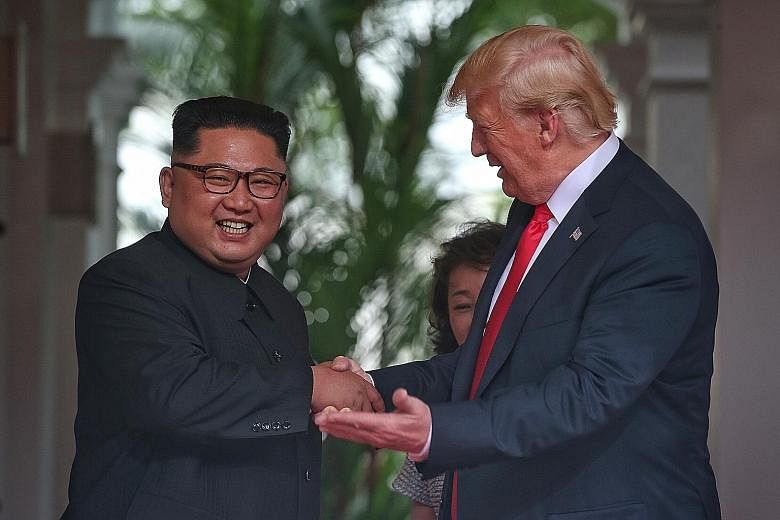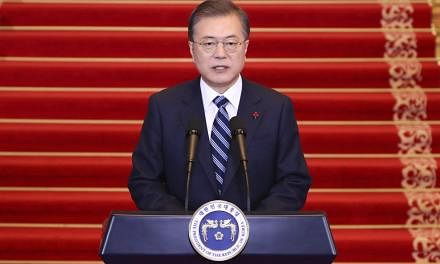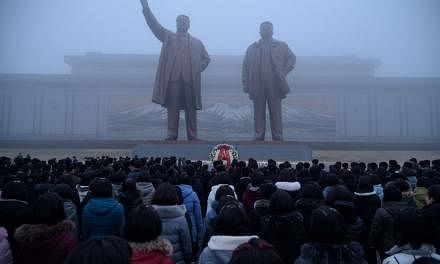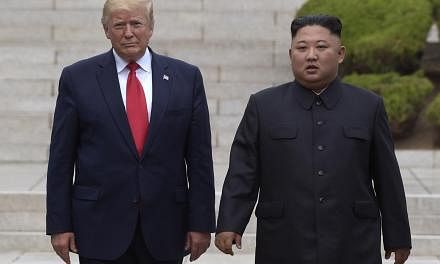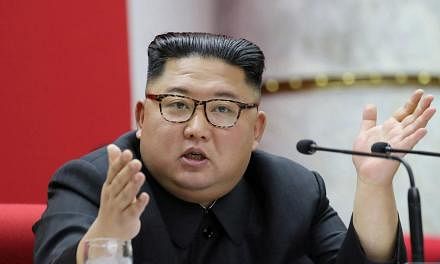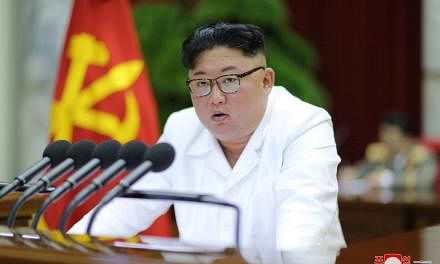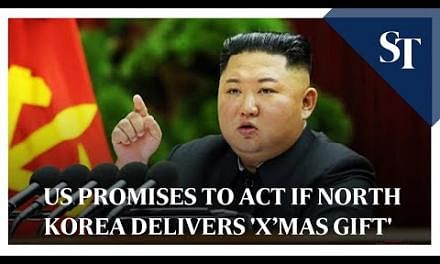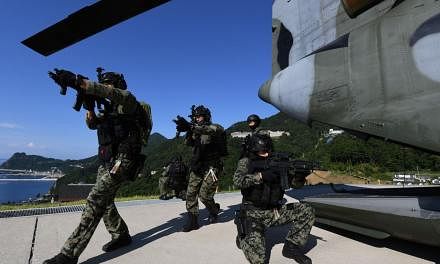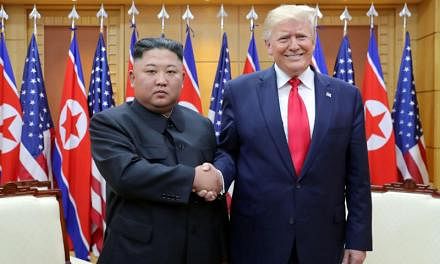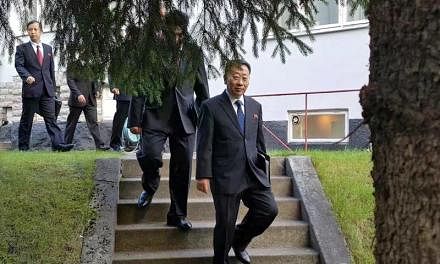SEOUL • The second summit between United States President Donald Trump and North Korean leader Kim Jong Un has raised hopes for the longest ceasefire in history to be replaced by a peace treaty.
Seoul and Pyongyang remain technically at war after the 1950-53 Korean War ended with an armistice.
Mr Stephen Biegun, the US special envoy for North Korea, said last week that Mr Trump was "ready to end this war", fuelling speculation that the formal end of the conflict may be near, with Mr Trump and Mr Kim meeting in Vietnam this month.
But analysts say a full peace treaty poses many complications, and will need extensive negotiations.
The 1950-53 Korean War ended with an armistice rather than a peace treaty, leaving the two neighbours technically still in a state of conflict.
The signatories to the armistice included the US-led United Nations Command, which fought alongside the South's troops, as well as China and North Korea.
Declaring an end to the war was one of the agreements at the first summit between Mr Kim and South Korean President Moon Jae-in last year, but little progress has been made, with the US and the North at loggerheads over Pyongyang's nuclear arsenal.
In his New Year's speech, Mr Kim called for "multi-party negotiations for replacing the current ceasefire... with a peace mechanism in close contact with the signatories to the armistice agreement".
For Pyongyang, a peace treaty is vital to regime survival as it will mean "North Korea and the US are no longer enemies", said Professor Koo Kab-woo from the University of North Korean Studies in Seoul.
South Korea's dovish Mr Moon - with a slogan of creating a peninsula "free of war" - is also a supporter.
But Washington has been wary as the treaty could bring into question the justification for its military alliance with Seoul and the 28,500 US troops stationed in South Korea.
"The US fears abrupt changes to the regional order will impact its own interests, which won't be good as China flexes its muscles," said Dongguk University North Korean studies professor Koh Yu-hwan.
A peace treaty would be welcome news for Beijing as it seeks a "reduction of the US role" on the peninsula, Prof Koh added.
The possibility is very low, given the complexity of the issue. Prof Koo of the University of North Korean Studies says the deal would require "so many world-changing issues", from amending the Constitutions of the two Koreas to readdressing the role of the US troops.
Dr Kim Dong-yub, an analyst at the Seoul-based Institute for Far Eastern Studies, added that negotiations for such a treaty may need more than three years.
The more likely scenario is for the concerned parties - North and South Korea, the US, and China - to declare a formal end to the war as a political statement.
Analysts offer differing outlooks but all agree on one aspect: An end to the war will undoubtedly trigger debate about the US troops in South Korea.
